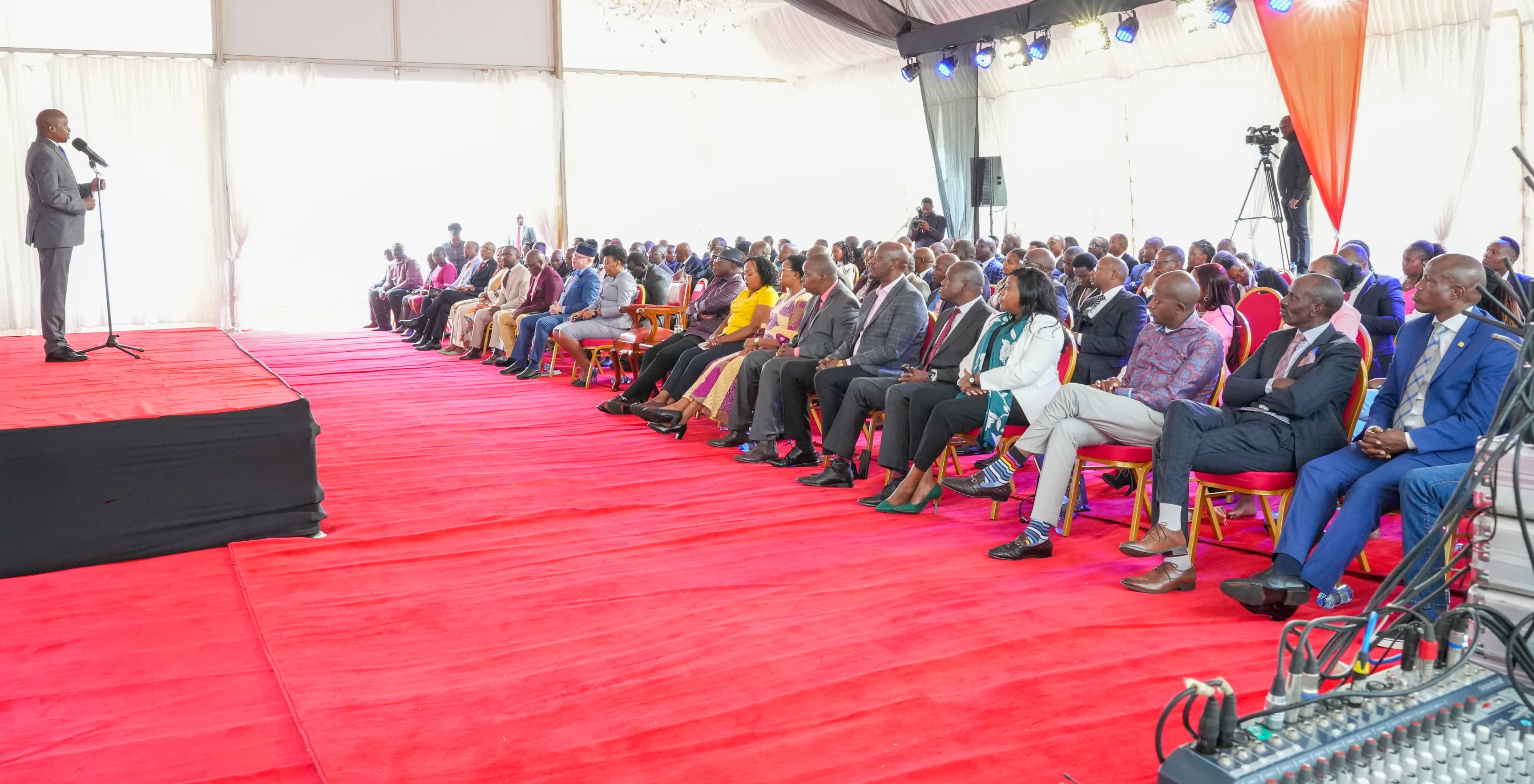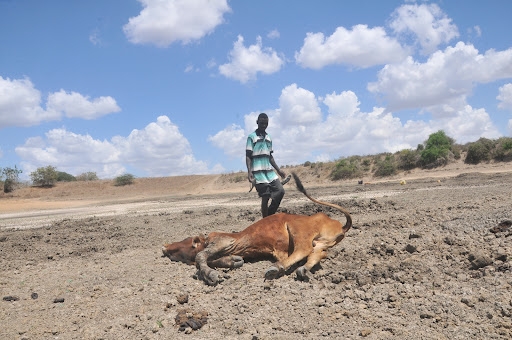
 Deputy President Kithure Kindiki addresses government communicators during a meeting to guide them on how to communicate about the Draft Finance Bill 2025-26 at his Karen Residence. /Mathew Gwendo/OGS
Deputy President Kithure Kindiki addresses government communicators during a meeting to guide them on how to communicate about the Draft Finance Bill 2025-26 at his Karen Residence. /Mathew Gwendo/OGS
The country has since independence relied on imports of food especially maize, wheat and rice commodities.
However, the imports have all through been marked by fluctuations depending on the seasonal rainfalls.
For example, a look at two years back explains the veracity at which the crossborder imports of maize oscillates.
A comparative review of the crossborder imports of maize for November, 2023, showed a decrease to 92,263 (90kg bags) compared to October the same year with a volume of 176,956 bags and 162,979 in September.
The imports reduction was attributed to a boosting of stocks from local harvest in the country, especially the North Rift region following favourable rains.
On the other hand, the quantity of wheat grain imported in November, 2023, increased by 34.6 per cent to 2,125,523 (90 kg bags) compared to October’s volume of 1,579,370 per 90kg bag with the highest quantities imported in June.
The quantity of beans imported in November decreased by 61 per cent to 15,576 (90kg bags) compared to October volume of 39,849.
The volumes imported in the year between April and November revealed a declined trend due to increasing availability of locally produced beans in the country, from the long rains crop harvests and subsidised fertilisers.
Buoyed by this scenario, the Kenya Kwanza government under President William Ruto aimed to further ease the financial burden to Kenyans by a commitment to economic stability through the Draft Finance Bill, 2024, but this was not to be after a section of the country’s young demographic took to the streets forcing the withdrawal of the Bill.
The government was, however, not detracted by the demonstrations as it devised fresh financial measures by instituting austerity measures and scaling down the amount of development projects and programmes.
This was done with the hope of reorganising itself in the future and the future is here defined by the 2025 Finance Bill that still strives to lessen the citizen’s financial affliction and institute the unsettled national development as per its manifesto.
The draft Finance Bill, 2025, aims to streamline tax refund processes, reduce tax disputes and amend key tax laws including the Income Tax Act, VAT Act, Excise Duty Act along with the Tax Procedures Act.
It also proposes critical changes to support tiny businesses by enabling them to fully deduct the cost of everyday tools and equipment in the year of purchase.
The draft Bill further desires to minimise tax-raising measures, instead promising to enhance tax administration efficiency through a new legislative framework.
This borrows largely from the withdrawn Finance Bill 2024-25 in which for instance, in the manufacturing industry the government sought to curb importation of products and food produce that could be locally produced with the aim of protecting local farmers, manufacturers and securing jobs for the people.
Treasury Cabinet Secretary John Mbadi assured Kenyans that the Finance Bill, 2025, does not propose any new taxes with an aim to issue a relief on household while stabilising market expectations.
CS Mbadi says the government's focus has now shifted from imposing levies on citizens to implementing internal reforms that promote accountability and efficiency and ensuring that public resources are used effectively.
He notes that the Bill plans to realign public-private tax thresholds in a move intended to enhance fairness and level the playing field across sectors.
In a statement he issued from the National Treasury and whose contents he has repeatedly articulately during every appearance in public events in regard to the 2025 Finance Bill, CS Mbandi affirms that the 2025-26 budget is by far different and unique from the 2024-25 budget or any budget presented in Kenya over the last 20 years.
“This 2025-26 budget has been designed to reduce the budget deficit from 4.9 per cent to 4.3 per cent of the GDP. This is a historical budget in Kenya and is aimed to improve the well-being of Kenyans by realising economic growth that informs President Ruto’s social contract with Kenyans being his third budget,” Mbandi observed.
He added that the National Assembly will involve the public as it processes the Finance Bill, 2025-26, not just as a procedural checklist but as consequential matter of public interest.
To this commitment, a number of public participation forums have been held revolving around the Finance Bill unlike in the past where the estimates were only subjected to a select few meetings at the KICC.
Pointing out the specifics of the budget, CS Mbandi said “there is a relief for workers, creators and digital talent where daily tax-free allowances for private employees is raised to Sh10, 000 enhancing the take home pay and boosts morale in the formal sector”.
This enables employers to compute all reliefs and deductions directly, simplifying payroll compliance and improves accuracy.
CS Mbadi emphasised that the 2025-26 budget is emphatic on austerity measures designed to strengthen fiscal discipline, reduce public debt vulnerabilities, and create the fiscal space necessary to deliver essential public goods and services for the benefit of Kenyans.
“To strengthen expenditure control and improve efficiency and effectiveness in public spending, the government will rationalise and reduce non-essential expenditure, roll out an end-to-end e-procurement system to maximize value for money and increase transparency in procurement. It will as well, operationalise the Public Investment Management Information System to automate public investment management process, revamp the public service pension administration through digitisation and re-engineering of the pension management system while expediting governance reforms targeting state Corporations,” the CS revealed.
The Bill proposes a reduction on the rate of the tax chargeable upon transfer or exchange of a digital asset from 3 per cent to 1.5 per cent.
This is to encourage the use of regulated digital platforms, reducing reliance on the black market, which exposes Kenyans to the risk of losing their investments.
Munira Mandano is a Public Communication Officer at the Office of Government Spokesperson.













